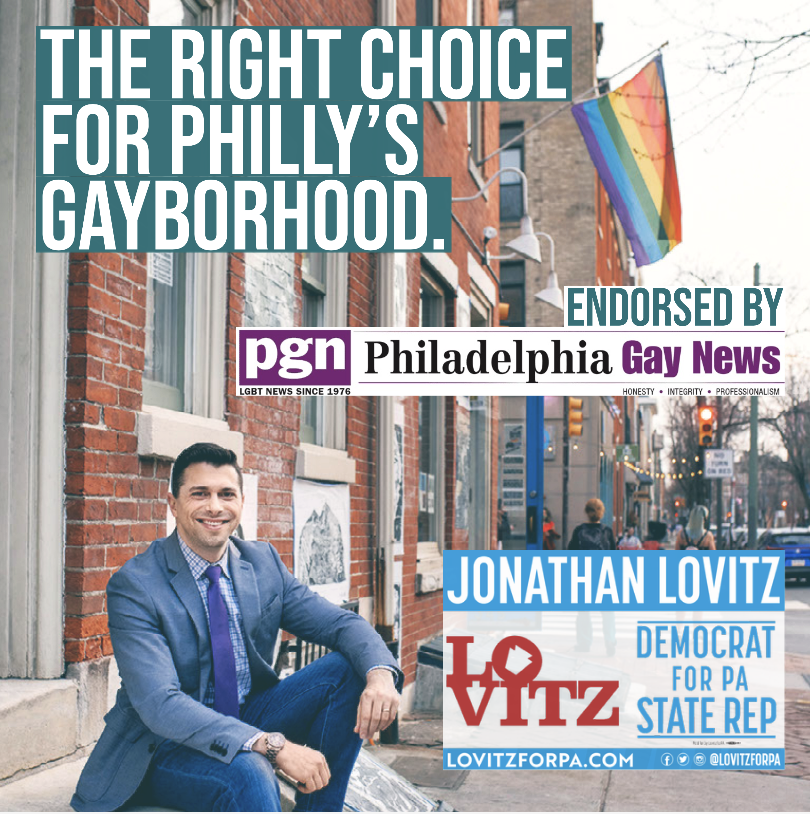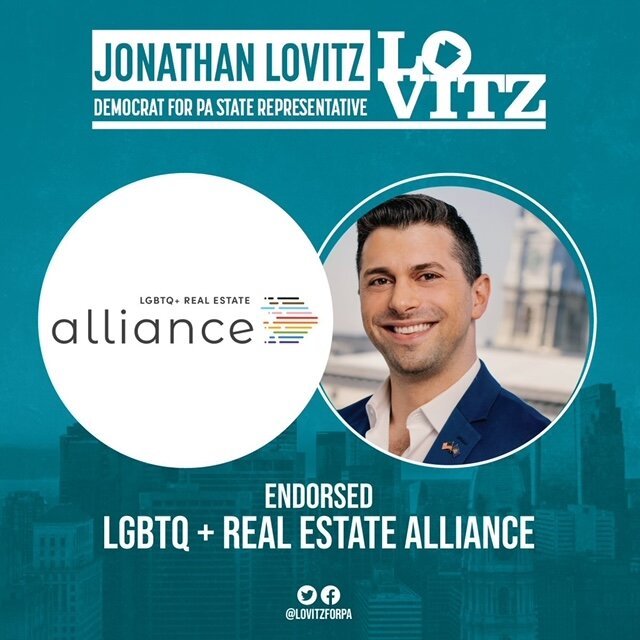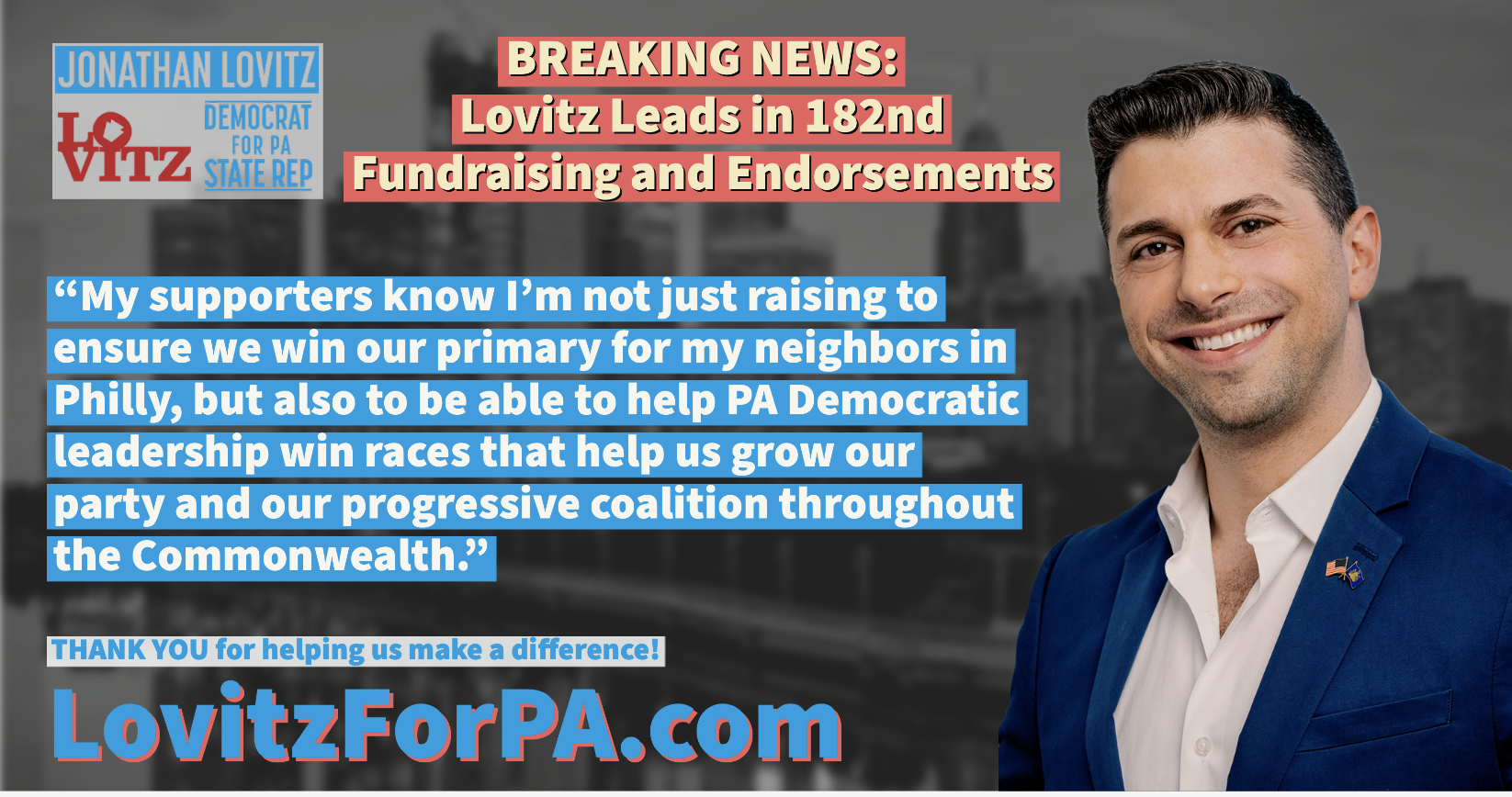Is Pa. hurt by lack of an LGBT discrimination statute?
Pennsylvania doesn't have LGBT protections in place, unlike other states in the Northeast, leaving local governments to institute their own.
Source: Philadelphia Business Journal
By Clara Lefton | November 10, 2016
Although same-sex marriage became legal in the United States 15 months ago, the LGBT community is not a federally protected class. That’s still up to the states and local governments.
Despite many attempts, legislators in the Keystone State have yet to amend the Pennsylvania Human Relations Act to include LGBT discrimination protections. While governors have signed executive orders and municipalities like Philadelphia have passed anti-discrimination ordinances, Pennsylvania stands out as the only state in the Northeast that doesn’t have state protections.
That leads to a major question: Does the lack of an LGBT protection statute hurt Pennsylvania economically? Do companies think twice about creating jobs here? Do we lose talented employees?
Ted Martin, executive director of the statewide LGBT advocacy group Equality PA, expressed this view. “In a state that is rapidly aging, in a state that sometimes struggles with keeping young talented people, I’m not going to say that nondiscrimination or having these protections on the books are sort of the be-all end-all. But wouldn’t you want every tool in your box to make sure that you can attract the best people here?”
In short, unless you’re in a municipality where LGBT discrimination is illegal, you can be legally discriminated against in sexual orientation or gender identity. Examples of this include:
- Being denied employment, a mortgage, housing, or credit
- Being unfairly fired or evicted.
- Being refused public accommodations like service at a hotel, library, hospital or services from government officials.
Without a federal ruling, residents of states like Pennsylvania have been left to follow a patchwork of policies. The state has 37 municipalities that include varying degrees of coverage against LGBT discrimination. Whereas 22 states and the District of Columbia have enacted some level of protection; 19 states outright prohibit discrimination based on sexual orientation. Three of those do not include gender identity.
“I can work right next door in one state where I’m fully protected and fully included in all of the, both public and private, opportunities. But I move my business right next door or I change jobs right next door and all of that goes out the window,” said Jonathan Lovitz, the senior vice president of the National Gay & Lesbian Chamber of Commerce. “So until we have a fully comprehensive federal policy that includes all 50 states, it’s still a very rocky climate for LGBT people to find equal access to the American dream.”
In an effort to amend the Pennsylvania Human Relations Act to be more inclusive of LGBT rights, a bill called the Pennsylvania Fairness Act has been introduced in the General Assembly. This bill has been brought forth to five legislative sessions, which are two years each, but has never passed.
In Martin’s time with the nonprofit Equality PA, he recalls a variety of headhunters contacting him over the years with gay clients. They reached out to him in regards to their clients’ specific concerns about moving to Pennsylvania and its potential negative impact on their lives as openly LGBT community members.
Chris Beiter, a central Pennsylvania native, struggled with the decision to move back home from the West Coast as an adult. Beiter’s father was struggling with some health issues which put pressure on being far away from his family. Upon weighing the pros and cons, he decided to move to Philadelphia. He was able to keep his job with DocuSign, a technology company with over a thousand employees. However, he now works remotely because the company is based in Beiter’s former home, San Francisco.
“I would love to be able to convince people to open a satellite office in the Philadelphia area and then I wouldn’t have to be flying back and forth across the country all the time,” Beiter said. “There’s still a perception problem for sure and the challenge of getting the whole creative workforce that will want to relocate somewhere. Philadelphia just doesn’t stand out because of that fact — because we don’t have the same set of [statewide] rights.”
There is a bright spot in Pennsylvania for LGBT advocates, however. The 18 Fortune 500 companies in the state have their own internal anti-discrimination policies and nine of them openly support the Pennsylvania Fairness Act.
“You can’t overstate enough the value that these Fortune 500s bring in influencing policy at the local level. They often act as, I say this in air quotes, ‘embassies for progressive diversity and inclusion policies.’ They state loudly and proudly that, ‘When you work for us, when you’re here on our corporate campus you are protected, valued, accepted and welcomed.’ That attracts great talent and great small businesses to support that corporation to that municipality,” said Lovitz of the National Gay & Lesbian Chamber of Commerce.
The Human Rights Campaign Foundation, issues an annual report on LGBT inclusion and equality in American workspaces known as the Corporate Equality Index. Pennsylvania-based companies on the list had an average rating of about 65 percent when taking into account factors like workplace discrimination, health insurance and other policies. Meanwhile, out of all the national companies listed in the 2016 CEI, the national average rating was only 61 percent.
Philadelphia-based media giant Comcast Corp. scored a perfect 100 percent on the 2016 CEI. The mass media conglomerate has a variety of openly LGBT employees, like Michael Cox, the senior vice president of talent acquisition, who moved to Philadelphia from San Francisco about a year ago.
“My personal philosophy is that as LGBT community members we have to live in and lead from the places that don’t embrace us sometimes in order to bring about the change and influence for future generations. It clearly did not deter me from moving to the area, but it did give me pause for concern,” Cox said. “The fact that Comcast and other Fortune 500 companies have such policies demonstrates a deep understanding of the issues that are important to the talented individuals that make up our workforce and our future workforce.”
Municipalities in the region with nondiscrimination ordinances
Thirty-seven municipalities in Pennsylvania prohibit discrimination on the basis of sexual orientation (SO), gender identity (GI) or both.
CITY OF PHILADELPHIA (1982 SO, 2002 GI)
BUCKS COUNTY
- Bristol Borough (2013)
- Doylestown Borough (2010)
- New Hope Borough (2002)
- Newtown Borough (2011)
MONTGOMERY COUNTY
- Abington Township (2012)
- Ambler Borough (2016)
- Cheltenham Borough (2012)
- Borough of Conshohocken (2011)
- East Norriton Township (2012)
- Jenkintown Borough (2011)
- Lower Merion Township (2010)
- Upper Merion Township (2012)
- Whitemarsh Township (2011)
DELAWARE COUNTY
- Haverford Township (2011)
- Lansdowne Borough (2006)
- Springfield Township (2011)
- Swarthmore Borough (2006)
CHESTER COUNTY
- City of West Chester (2006)
- Downingtown (2014)


